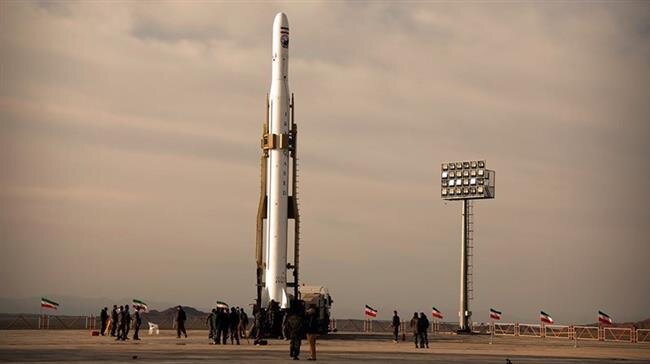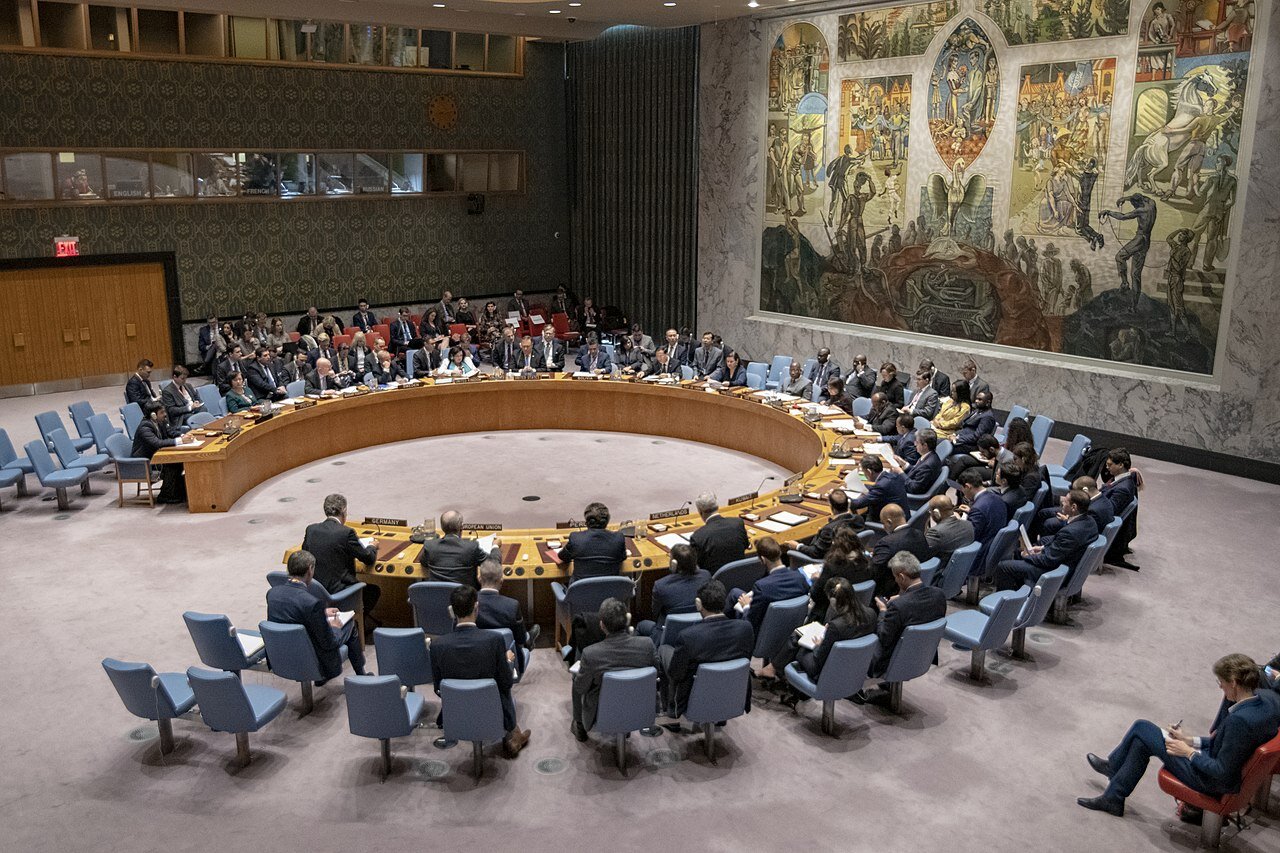Dasht-e Kavir, Iran. April 22, 2020. Iranian military satellite Nour-1 is seen before launch from the Qassed launcher Photo credit: Tasnim news agency.
TEHRAN, Iran. April 22nd, 2019. Surprising much of the western world, Iran successfully launched a rocket into space carrying an allegedly sophisticated satellite called Nour (light). Along with rather glaringly demonstrating that the maximum economic pressure campaign waged by Washington for several years can’t prevent sophisticated military equipment from being deployed by Iran, reporting from Al Jazeera claims the launch was completely undetected by unfriendly powers.
Officials at the time described it as a multi-purpose satellite that expands the ability for Iran to gather strategic intelligence.
“This [satellite] launch sends this message that the IRGC (Iranian Revolutionary Guard) was able to keep the secrecy of the program until after its successful launch. With this achievement, Iran has basically raised the geopolitical equations to a new level,” said an official with the IRGC who spoke with Al Jazeera on the condition of anonymity.
Mike Pompeo and other western officials decried the launch as evidence of Tehran’s hunger to produce a nuclear delivery system, but others like Russia have dismissed the claim, saying Iran did not violate the United Nations Security Council resolution 2231, which was passed regarding the U.S.-Iran Joint Comprehensive Plan of Action of 2015 signed by former president Obama.
France, Britain, and Germany all released statements saying the launch went against the resolution, although as World at Large has broadly reported, both the United States, and western European powers that acted as parties to the treaty of 2015 have already violated it in their own ways, which fiery Foreign Minister Mohammad Javad Zarif was quick to point out.
“US has been bullying all against UNSC Resolution 2231 since 2017. Europe obeyed US instead of 2231. Neither can lecture Iran based on flimsy misreadings of UNSCR 2231,” Zarif tweeted, adding that the satellite is not intended to carry “such horrific arms”.
Destined to fail
The mean success rate of economic sanctions, as World at Large has detailed before both in Iran and in Venezuela, two countries which the United States has deployed them against with remarkable severity, tends to be very low in terms of their stated objectives.
Sanctions, as stated by the U.S. Office of Foreign Asset Control (OFAC) are measures to discourage things like government corruption, oppression and human-rights abuses, crimes against humanity, or state-sponsorship of terrorism. They tend to be placed on individuals, their property held outside of the country, or their businesses.
However in countries like Iran, Venezuela, North Korea, and others which tend towards high levels of state corruption, these sanctions, in a similar way to the theory of trickle-down economics, are basically passed down to the population of these countries. Moreover, described as unilateral coercive economic measures, sanctions have been denounced by the UN Human Rights Council as violations of natural rights.
Last Year, UN economist Jeffery Sachs detailed that it’s very likely, though almost impossible to tell exactly, that U.S. sanctions in Venezuela had already killed 40,000 Venezuelans from the resulting food and medicine shortages.
During the Bill Clinton administration his leadership in creating the United Nations sanctions on Iraq resulted in somewhere between 100,000 and half-a-million children dying before their 5th birthday from deprivation alone. Described by Barack Obama as “crippling economic sanctions” the maximum pressure campaign against Iran seems to be accomplishing no more than any other sanctions campaign – starving and impoversing individuals in the working class.
“All parts of the satellite, including the carrier and satellite, have been produced by the Iranian scientists despite the US sanctions,” IRGCs leader Major General Hossein Salami was quoted.
“The message of this important achievement is that sanctions are not an obstacle on the way of Iran’s progress and will further motivate the country to turn into a big power in the region”.
COVID-19 and sanctions
If further evidence is needed to suggest that sanctions cannot by definition accomplish their goals in nations where economic and military power is consolidated, or where rampant state corruption is common, Iranian scientists and the IRGC managed to produce what experts in satellite technology described as a “very sophisticated” satellite and delivery rocket during the height of the COVID-19 curve.
“Iranian missile and rocket technology have advanced to an incredible degree in the last two decades,” Fabian Hinz tells Al Jazeera. “The amount of technological achievements they have made is quite astonishing. However, they have restrained themselves to a 2,000km (1,240 mile) range”.
Hinz is an associate researcher at the James Martin Center for Nonproliferation Studies at the Middlebury Institute of International Studies in Monterey, California, and an expert in Iran’s space program.
He added that Iran has nothing left to lose, as sanctions seem to be a permanent state of affairs, regardless of humanitarian crises like COVID-19, any promises they make to the UN, or acquiescence to independent investigations from the International Atomic Energy Agency.
“While Western officials and media are trying to emphasise the military aspect of this satellite, it is good to point out the space technology is built on basic sciences such as mathematics, physics and chemistry,” said the anonymous IRGC official. “Considering its multi-disciplinary applications, this achievement could well advance other civil industries such as agriculture, automotive and telecommunications, among others,”
He added that Nour is just one part of a larger project of satellite deployment, stating that Nour2 will be going up in the near future.
Continue exploring this topic — Maximum Pressure Campaign on Iran Intensifies as Fresh U.S. Sanctions Join Coronavirus in Impacting the Country



